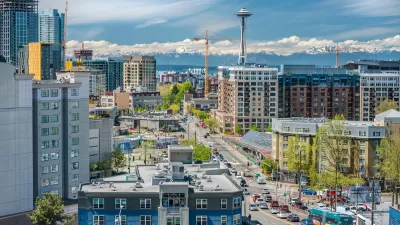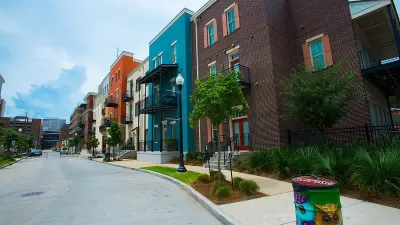The District could tighten the rules for a pandemic-era housing assistance program and speed up the eviction process.

The Washington. D.C. Council could end pandemic-era renter protections and roll back assistance programs, report Meagan Flynn and Aaron Wiener in The Washington Post.
The proposal from Council Chairman Phil Mendelson comes as District affordable housing providers face millions in unpaid rent, high interest rates, and rising insurance costs — with the blame falling largely on unpaid rent — in what Jon Banister called an ‘existential crisis.’ “At some properties, as many as 40 percent of tenants are behind on their rent, leaving the landlords in a financial hole, building owners say.” Mayor Bowser proposed cuts to the program in April, calling for a return to “everybody paying their rent and utilities.”
The proposed legislation would create stricter rules around documentation for Emergency Rental Assistance Program (ERAP) recipients and new standards that could speed up eviction proceedings. “Under the proposal, judges could only pause an eviction case if a tenant shows evidence that rental assistance from the District could help them fully resolve their unpaid rent or that the tenant and landlord have agreed to a payment plan to resolve the remaining balance.”
Council Member Robert C. White Jr., chairman of the council’s housing committee, expressed concern about the deep need for affordable housing, but ultimately supported Mendelson’s bill, noting that “the data that we’ve gotten on nonpayment on rent and the impact that that’s having.”
FULL STORY: D.C. Council aims to tighten housing policies as unpaid rent climbs

Planetizen Federal Action Tracker
A weekly monitor of how Trump’s orders and actions are impacting planners and planning in America.

Congressman Proposes Bill to Rename DC Metro “Trump Train”
The Make Autorail Great Again Act would withhold federal funding to the system until the Washington Metropolitan Area Transit Authority (WMATA), rebrands as the Washington Metropolitan Authority for Greater Access (WMAGA).

The Simple Legislative Tool Transforming Vacant Downtowns
In California, Michigan and Georgia, an easy win is bringing dollars — and delight — back to city centers.

The States Losing Rural Delivery Rooms at an Alarming Pace
In some states, as few as 9% of rural hospitals still deliver babies. As a result, rising pre-term births, no adequate pre-term care and harrowing close calls are a growing reality.

The Small South Asian Republic Going all in on EVs
Thanks to one simple policy change less than five years ago, 65% of new cars in this Himalayan country are now electric.

DC Backpedals on Bike Lane Protection, Swaps Barriers for Paint
Citing aesthetic concerns, the city is removing the concrete barriers and flexposts that once separated Arizona Avenue cyclists from motor vehicles.
Urban Design for Planners 1: Software Tools
This six-course series explores essential urban design concepts using open source software and equips planners with the tools they need to participate fully in the urban design process.
Planning for Universal Design
Learn the tools for implementing Universal Design in planning regulations.
Smith Gee Studio
City of Charlotte
City of Camden Redevelopment Agency
City of Astoria
Transportation Research & Education Center (TREC) at Portland State University
US High Speed Rail Association
City of Camden Redevelopment Agency
Municipality of Princeton (NJ)





























